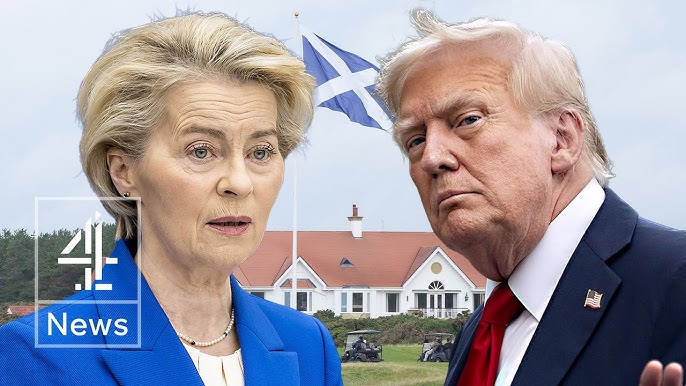The tragic killing of U.S. activist, 26-year-old Shireen Abu Akleh, in the West Bank in May 2022 continues to spark outcry and demand for accountability from her family, human rights organizations, and the international community. A journalist with the prominent Al Jazeera network, Abu Akleh was fatally shot while covering an Israeli military raid in the Jenin refugee camp, a volatile region in the West Bank. Despite the Israeli Defense Forces (IDF) and the U.S. government both conducting investigations into her death, her family remains resolute in their demand for justice and answers. The case highlights ongoing tensions in the Israeli-Palestinian conflict and raises profound questions about the safety of journalists in conflict zones, particularly those reporting on sensitive, politically charged issues.
Shireen Abu Akleh’s Legacy and the Circumstances of Her Death
Shireen Abu Akleh was a well-known Palestinian-American journalist who had worked for Al Jazeera for over two decades. Her reporting, often from the front lines of the Israeli-Palestinian conflict, had earned her respect across the Arab world and beyond. Known for her calm demeanor and professional integrity, Abu Akleh had become one of the most prominent journalists in the region, often providing in-depth coverage of the humanitarian crisis faced by Palestinians living under Israeli occupation.
On May 11, 2022, Shireen Abu Akleh was covering an Israeli military operation in the Jenin refugee camp, located in the northern West Bank. During the raid, which was reportedly aimed at apprehending militants, Abu Akleh was shot in the head while wearing a bulletproof vest clearly marked “Press” and a helmet. She was pronounced dead shortly after being rushed to a hospital. Fellow journalist Ali al-Samoudi, who was with her at the time, was also injured in the attack but survived.
The circumstances surrounding Abu Akleh’s death quickly became the subject of intense scrutiny. Al Jazeera immediately accused the Israeli military of deliberately targeting the journalist, pointing to the fact that she was clearly identifiable as a member of the press. Palestinian witnesses and several independent investigations also supported this claim, stating that Abu Akleh had been shot by Israeli forces during a firefight with militants, even though she was not involved in the fighting and was standing in an open area clearly marked as a press zone.
In response, the Israeli government initially denied any responsibility for her death, suggesting that Palestinian gunmen may have fired the fatal shot. The IDF later admitted that it was “highly likely” that one of their soldiers had accidentally killed Abu Akleh, but they insisted that it was unintentional and part of the chaos of the military operation. Despite this acknowledgment, no individual soldier has been held accountable, and the investigation remains inconclusive.
Family’s Demand for Justice
Shireen Abu Akleh’s family has consistently challenged the Israeli military’s narrative, demanding a transparent and independent investigation into her death. In the weeks and months following her killing, her family called for accountability, urging both Israeli and U.S. authorities to take meaningful action. At the heart of their demands is the belief that the killing of a journalist should never be allowed to go unpunished, regardless of the political or military context.
Her brother, Tony Abu Akleh, has been particularly vocal in seeking justice for his sister. “Shireen was not just a journalist—she was a beloved sister, a cherished daughter, a friend to many,” Tony said in interviews after the incident. “The fact that she was shot while carrying out her professional duties is a tragedy that must not be allowed to go unanswered.”
The family’s demands extend beyond a mere acknowledgment of wrongdoing. They seek a full, transparent investigation into the incident, one that is independent of the Israeli military. Given the complexity and potential bias of an Israeli-led inquiry, they have repeatedly called for international involvement, including from the United Nations or a third-party investigative body that can offer an unbiased assessment of the situation. They argue that without such scrutiny, the truth will remain obscured, and the possibility of accountability will be diminished.
Furthermore, the Abu Akleh family has expressed frustration with the U.S. government’s response to the incident. Despite the fact that Shireen was an American citizen, her family feels that the U.S. government has not done enough to hold Israel accountable for her killing. While the Biden administration has publicly expressed its condolences and called for an investigation, the family argues that the response has been tepid and insufficient in terms of action.
“Shireen was not just a journalist to us,” her brother Tony continued. “She was our family. She was our daughter, and we demand that her death be taken seriously. The U.S. government, as her country of citizenship, needs to step up and demand real answers from Israel. Anything less is an injustice.”
Investigations and International Scrutiny
The Israeli military conducted its own internal investigation, which initially concluded that there was no evidence of a deliberate attack on Abu Akleh. Instead, it claimed that the journalist was likely killed by “errant fire” during the operation. This assertion was met with widespread skepticism from human rights organizations, which have pointed out the highly questionable nature of such an assessment, particularly when considering that Abu Akleh was targeted while clearly marked as a member of the press.
In response to calls for an independent investigation, the U.S. government, under President Joe Biden, also conducted its own inquiry into the death of Shireen Abu Akleh. In July 2022, the U.S. State Department released a report that concluded that the journalist was “likely killed by Israeli military fire,” but it did not find evidence that the shooting was intentional. The U.S. report further emphasized that the investigation could not definitively determine whether the fire came from Israeli forces or Palestinian gunmen.
Despite this conclusion, no formal accountability has been established. Israel has made it clear that no criminal charges will be filed against the soldier who may have fired the fatal shot. This lack of accountability has fueled outrage, with critics accusing both the Israeli government and the U.S. of covering up the incident or failing to pursue justice for a journalist killed in the course of her work.
International human rights organizations, such as Human Rights Watch (HRW) and Reporters Without Borders (RSF), have condemned the lack of accountability and called for further investigation. HRW has described the killing of Abu Akleh as part of a broader pattern of impunity for attacks on journalists covering the Israeli-Palestinian conflict. RSF, for its part, has called the death “an attack on press freedom” and highlighted the broader risks journalists face in conflict zones.
Press Freedom and Safety in Conflict Zones
The death of Shireen Abu Akleh underscores the growing dangers faced by journalists in conflict zones worldwide. The killing of journalists in war zones or areas of political unrest is not a new phenomenon, but the targeting of a well-known, clearly marked journalist while performing her duties raises troubling questions about the deliberate targeting of the press. The international community, as well as media organizations, has called for greater protections for journalists operating in areas like the West Bank, where tensions are often high and violence against reporters is not uncommon.
Abu Akleh’s killing also reflects the broader challenges to press freedom in the region. As journalists attempt to cover the complex and often volatile realities of the Israeli-Palestinian conflict, they face the constant risk of being caught in the crossfire or targeted by security forces. The impunity surrounding Shireen’s killing serves as a stark reminder of the risks journalists take in pursuit of truth and the lack of sufficient safeguards to protect them.
Conclusion
More than a year after Shireen Abu Akleh’s tragic death, her family’s demands for justice remain unanswered. As her brother Tony has said, their quest for accountability is not only about Shireen’s death but also about ensuring that future generations of journalists are able to do their work without fear of retribution. The family of Shireen Abu Akleh has made it clear that they will not rest until they receive answers, and their call for justice continues to resonate with advocates for press freedom and human rights worldwide.
Shireen Abu Akleh’s legacy, and the fight for justice surrounding her death, highlights the importance of protecting journalists, especially in conflict zones. Until her killers are held accountable, her family’s fight remains a reminder that justice must be pursued, even when the odds seem overwhelming.



